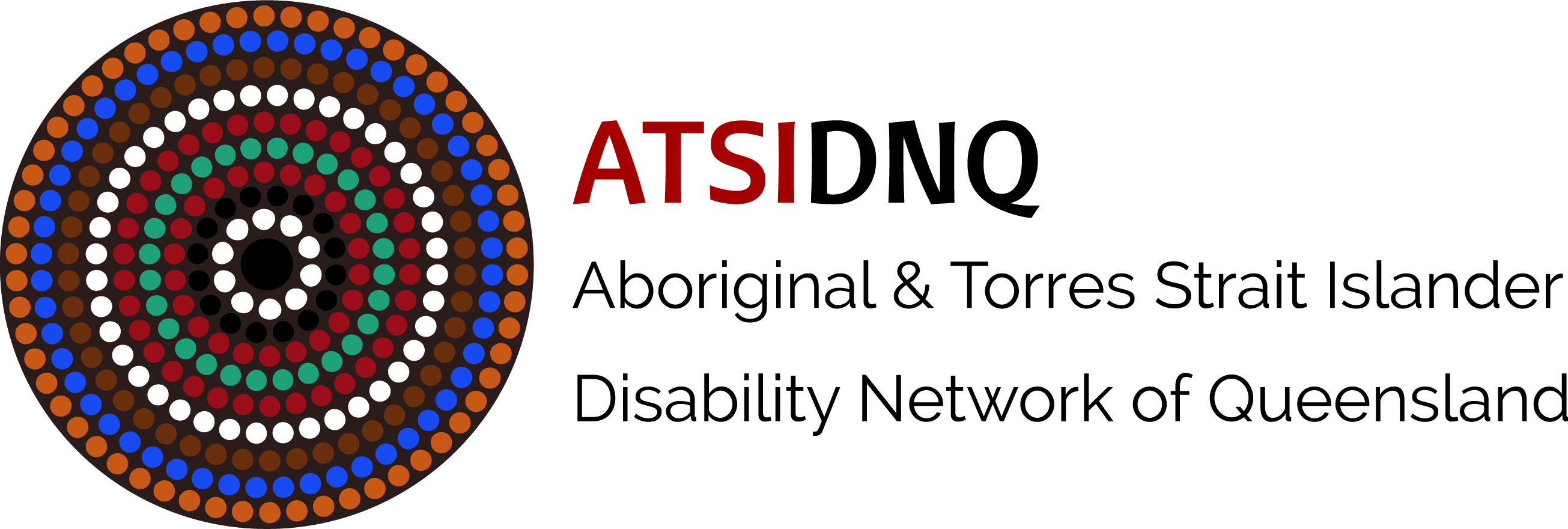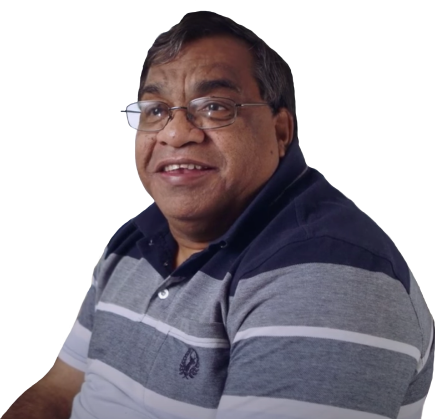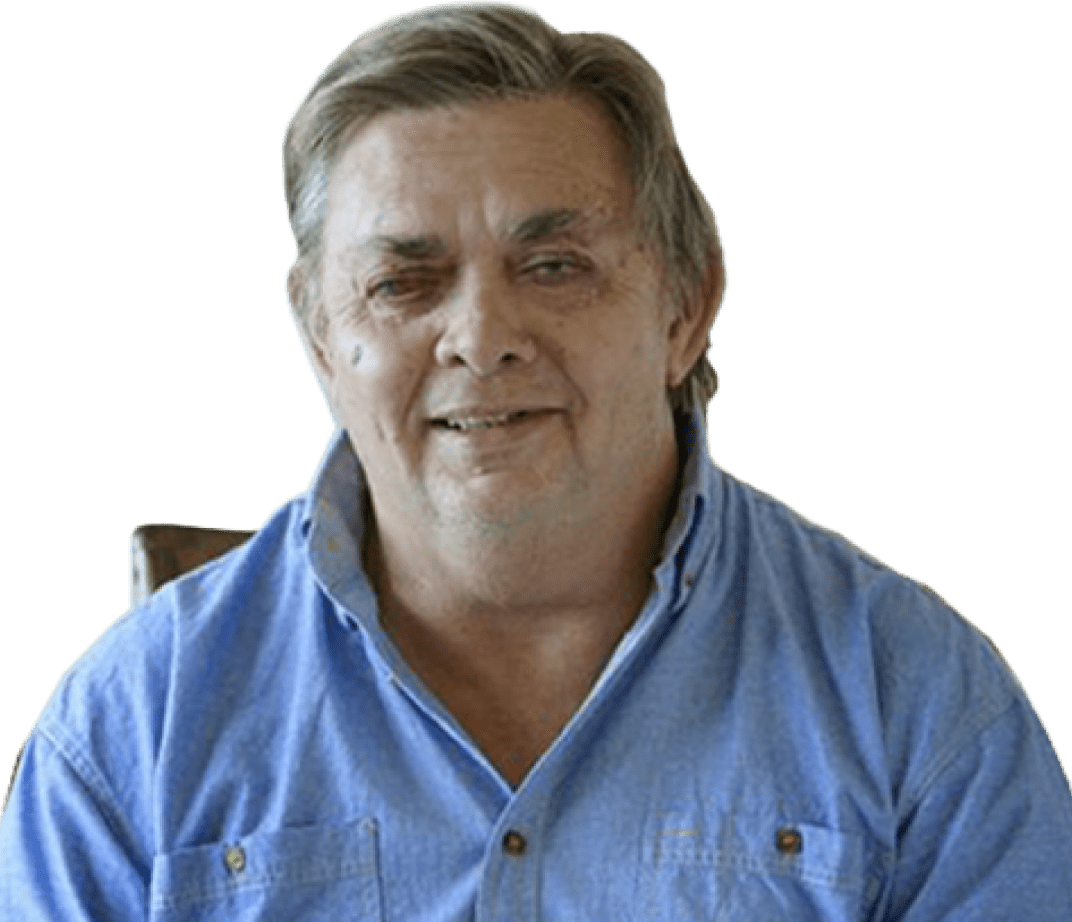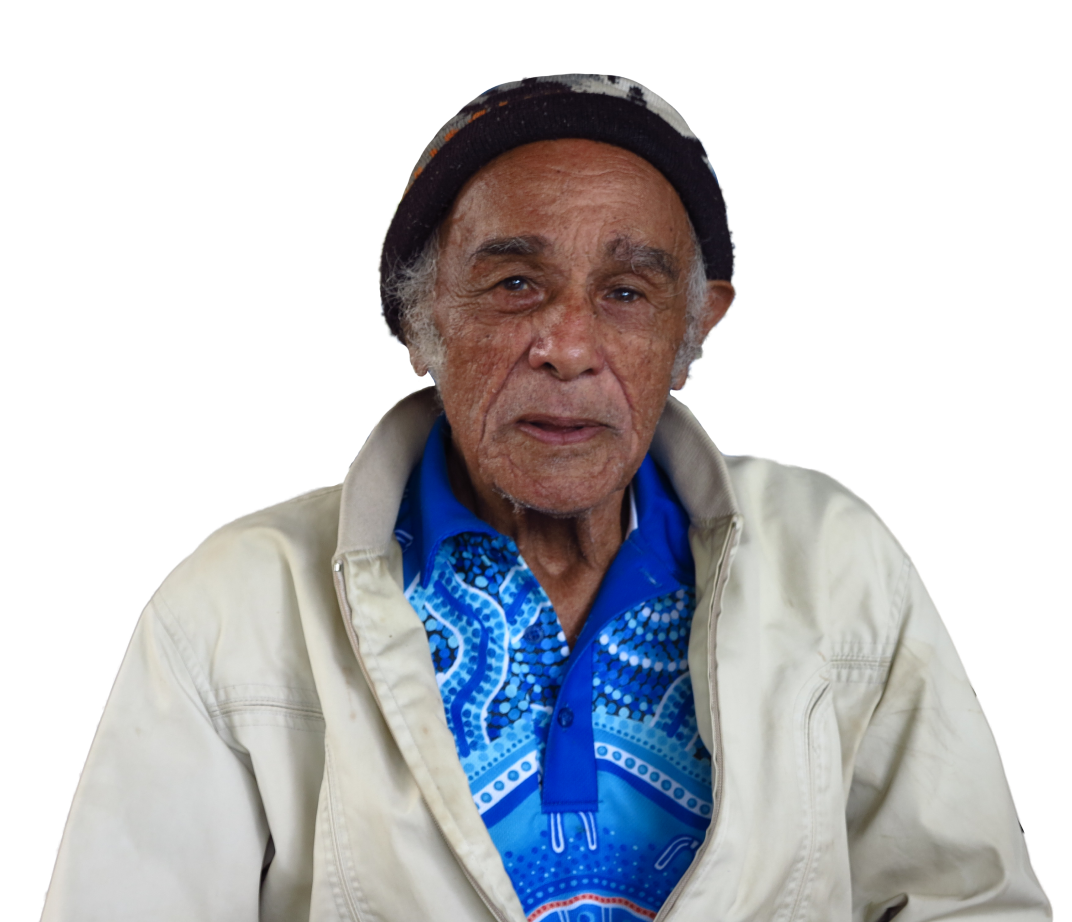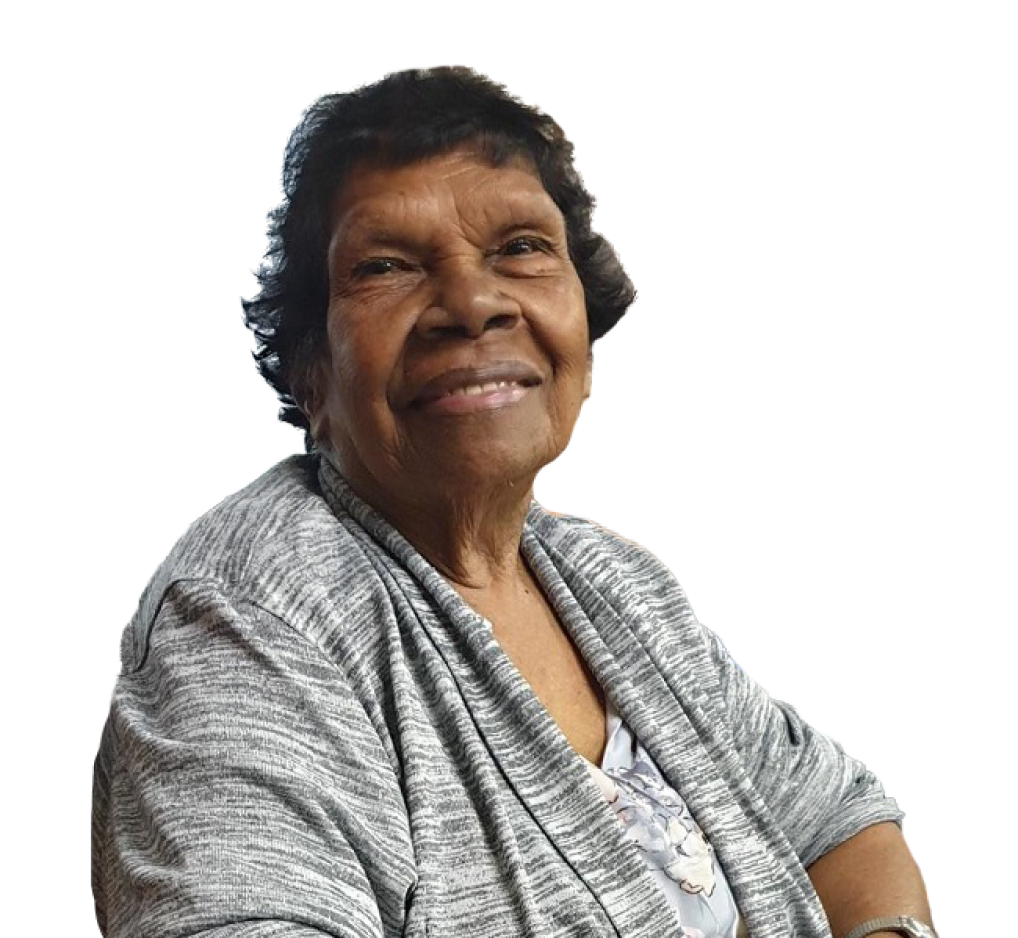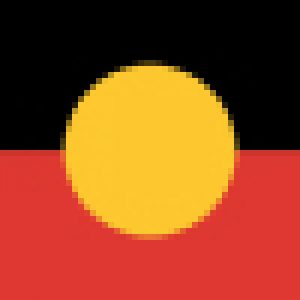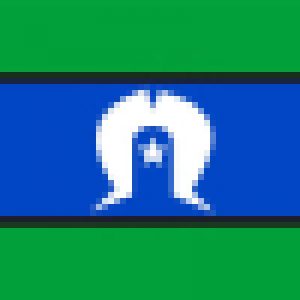Robin’s Story
G’day, my name is Robin Thorne. I was born in 1957 in a little town called Boddington which is about 17kms off the Albany Highway, 90kms from the edge of Perth in Western Australia.
At the time my family was living on the Aboriginal Reserve at Bannister and it was mostly my family, extended family who lived there. My family used to clear the land that would become the farms in the area, and my grandfather, Spencer Thorne was the one who took responsibility for the family, chose which ones went to do seasonal work for different farmers, fencing, cropping, shearing, harvesting, and also was able to burn and sell charcoal, particularly in the days when cars burned charcoal too.
I am a very proud member of the Nyoongar Nation of South-West Western Australia. My Mother’s people are the Balladong Tribe, and my father’s people are the Wilmen Tribe. As the Nation of people forced into the most direct and continuing interface impact with the dominant Western Culture, the loss of Cultural Practice has been very hard, and continues to be hard on my People.
My family moved when my father got a job as a Farm Hand a mile from the Reserve at Bannister just prior to the Reserve being closed down after the 1967 Referendum that gave Aboriginal and Islander People Citizenship rights and equal pay (theoretically at least) and the right to experience the pressure and racism that comes from being housed next door to non-Aboriginal families, competing for the same jobs and sending your kids off to school with white kids with the emphasis being on ‘do it or get jailed for failure to do so. Oh, and you better be good neighbours or we’ll jail you for being anti-social as well’, with no regard to what our people or white people felt about any of it.
My experience of starting school in 1962 was one of ‘we live twelve miles from town, I’ve got work to do and I’m not coming to get you from school just because you get the sniffles, if you haven’t broken something or you are dying from the ‘flu you get on that bus and go to school every day’. Needless to say, I put up and shut up about most of my experiences of racism at school, dealing out my own punishment to kids who pushed the line too hard.
I went to Boddington Junior High School for the 10 years of my formal schooling, left school at 15 after completing 3rd year high and a few months later began a Pre-Apprenticeship course at Leederville TAFE and completed my Apprenticeship as a Cabinetmaker at 19 years. I was dissatisfied with Cabinetmaking as a career at that point and chose not to pursue it. After a year or so of labouring type jobs, including working for a crazy cold winter in a Bunnings wood yard as a Tallyman – the fella who collects all the different size pieces of wood that make up the stack which gets dropped off at a home or larger building site – and you work outdoors rain, hail or shine… Keeps a bloke fit though hehehe.
I then did another Community College Course to be a Group Worker, which Qualifies you to work with young people whose circumstances lead to them being placed in the Care of the Welfare Department. I had to wait until my 21st birthday so that I could start that work, which meant adapting to working rotating shifts. I’d never done rotating shifts before and it took a bit of getting used to. I got married for the first time around 1980, and had two daughters, in 1984 and 1989, both of whom I cherish. My first marriage lasted 26 years, a few too long one could say.
After working a few years in the old Receiving Home in Perth I wanted to take up the offer to work in Country Hostels with kids from remote towns, Aboriginal Communities and Station in the Pilbara Region, first at the Oolanyah Hostel at Marble Bar, taking care of Primary School aged kids, in what was known as the hottest town in WA and possibly Australia, then Port Hedland at the Moorgunya Hostel with High School kids, before trying out the Derby High School Hostel, over about 4 years six months, it was a totally relaxed and enjoyable time of my life and many of those young people were a joy to work with.
Since moving to Mackay and I guess not helped by my younger daughter Aimee passing away in early 2016, followed by my Mother in September 2016. I am hoping I get some of that energy back and I can move on now.
Being active enough to experience Mackay is one of my main aims and I like the thought, it Hostels, and comprised 6 or so Hostels spread across the Metro area and were mostly large houses which Group Workers did their best to keep a reasonable level of behavioral management of a – usually – vastly varied group of young people with as varied a set of people and personal skills, qualities and experience, and often it would be a matter of trying to guide the ones with less “worldly skills” away from the ones who were seasoned Street Kids and could/would survive anywhere. That took me from 1987 to 1990 when I was encouraged by my Aunt – a dear, beautiful, wise and special person to me – to apply to be a Project Coordinator for a Project, employed by the Police Department to create, establish and provide a Conflict Resolution Service for my People, the Nyoongar People of South-West W.A.
This was a very confronting choice I realized I had made at first, but conversations with my mother and my aunt helped me to realize I had many of the skills and experiences I was going to need for this journey already, and that I was from a family that did not have a reputation for being involved in Family Feuding behaviour was a bonus. Whilst I didn’t have a reputation for being involved in conflict either, like many of my people, when we put our mind to the ways that feud type conflicts work, we do have an instinctive knowing about “what makes them tick” and I was lucky enough to find that the Director of the Community Justice Centres in New South Wales, Ms Wendy Faulkes, a lady who had learned much about Mediation and Conflict Resolution Processes from her experiences after being awarded a Churchill Fellowship when she chose to study the way the Chinese people dealt with conflict at the most basic levels, up.
I was able to spend precious time with Wendy and many of her most experienced staff in fitting my mind around the concepts discussed and making the fit with the way that would work for my people, whether in terms of changing language to use more suitable words, or changing the way to lay out the steps of a process and still reach the same goals at the end.
Accepting the importance of recognizing the timing of a serious incident that could involve the severe bashing of a number of people, the violent death of an individual as the result of Domestic Violence, or a result of a violent incident involving large mobs of people where guns may have been fired to stop the violence, can create windows of time for a Peacemaker to be “introduced into the mix” and offer their skills, experience and knowledge where they can speak with both victims and perpetrators – which are what all the family members are to a great degree – of the feud and ‘draw pictures’ of ways to take control of the conflict in ways that will create peace in a way that they choose, accept full responsibility for, and manage within their own family resources.
Because families are almost invariably needing time out to test out their new life, with these new commitments and time and opportunity to try out new experiences as ‘normal’ community members, like joining a TAFE Course without the baggage that feuding can cause, or going for a work experience or a full-time job for the first time, and you are 30 years old and couldn’t even see yourself doing this before, often the aim isn’t to gain a written agreement that outlines what will or will not happen for some unrealistic period into the future, the aim is to negotiate truce agreements between families where making a verbal agreement for how a truce will work between families, has shown itself to be the most powerful and preferred method for most Aboriginal people, whether for Nyoongars in the South-West, or remote Aboriginal communities and towns across Western Australia. I did that work till 1998 and was successful in 93% of the conflicts where I was accepted into. I would have to say that my experiences only served to make me more proud of my people and a stronger Aboriginal person within myself.
At the insistence of a number of people, Wendy Faulkes being at the front of them, I was convinced to apply for a Churchill Fellowship to further my understanding and broaden my knowledge and experience. As I have always felt a kindred feeling and fascination toward Native American Culture, believing that there is a strong feeling of brotherly closeness and genuine interest between our People’s, I chose to travel to the USA, including Hawaii, and Canada, spending time in Reservation Communities wherever possible, or with Urban Workers where Native Americans do their best to work with individuals and families who are often detached and/or disassociated with their Reservation communities and often victims of alcohol, drugs and other forms of abuse and their own people are their only true supports invariably. I found the experience to be fascinating and life changing.
I had a two year period from 1998 to 2000 that I prefer to keep private to myself. Suffice to say that surviving political assassination is a tough business too, but being a target because of being successful at what you do and thereby keeping thousands of your people out of the Justice System will help you to get out the other side a bit more effectively, even if not easily.
My next job in 2000, was as a Senior Case Manager for the Indigenous Family Program, working with the Coalition of Aboriginal Agencies, to establish a new way to work with and engage the hardest to engage Indigenous families in the Perth Metropolitan area. The IFP lasted a few years and became the framework for what WA Welfare went on to call their ‘Strong Families Program’, another experience I am very proud of my part in.
I then was the Project Coordinator for the Family Support service in the Local Government area of Armadale, providing support services to local Aboriginal people, support and advice to local government, Aboriginal corporations, Men’s Group’s and other service agencies.
After this I was the Senior Aboriginal Men’s Health Worker for South Metro Health Services and worked mainly in the South Eastern Corridor between East Victoria Park and Armadale. Often engaging with already established Men’s Groups provided the best opportunity to engage with groups of Aboriginal men due to the breaking down of strong relationships in an every day context, and it becomes easier to get picked up to go to a Men’s Group meeting as a persons car may have broken down and going anywhere becomes an issue. I became skilled at connecting different community workers and Men’s Groups when community funding grants became available and rather than see them miss out, I would ask the Men’s Group to invite particular community workers to explain how they might apply as partners for significant grants. A number of these applications were successful.
I then moved on and accepted the urging of my family, my Mother, Father and my Sister who wanted me to work with them to make our families Aboriginal Corporation a successful community organisation and a part of the support network for Aboriginal youth and families. I felt we were successful to a small degree in making headway in a hard environment, when my sister and I had our Father pass away via a massive heart attack which hit him as he was about to walk into my Sister’s office. I think that event took a long time to recover from. Our feelings and commitment toward the Corporation was never the same after that. I married for the second time around this period, unsuccessfully again and was again divorced within two years.
We eventually moved on to other jobs, my Sister to a job in Government Health, and I went to a Job as Senior Project Officer for a Suicide Prevention Project “One Life” with Local Government in Midland. I was enjoying this role, especially as I was working for the first time with my good friend Tracey Pollett, when I got sick in 2013. I was given a working diagnosis which was Idiopathic Central Pontine Myelinosis, and as I had no memory of even the initial stages of the illness, prior to admission to hospital, I can only say that my understanding of what happened is that I initially got cycles of extreme abdominal pain in company with high temperatures. I have never been a Drinker, I have never Smoked and I have never done Drugs – only those prescribed by a Doctor, which is not necessarily a recommendation if you know what I mean – So it is a mystery to me about the hows and whys it happened and what caused it.
When I was admitted to the Fremantle Hospital ICU it was May 2013 and I was released in July 2013, with no memory of anything from March or April till July. I was told that I was Blue Coded three times when I stopped breathing of my own volition and I was intubated for periods until I settled enough to enable another attempt to allow me to breath on my own. Not an experience that I would wish on anyone, and I do include any and all that I may have had not so positive thoughts about at any time in my life. To go from a reasonably fit fella on a salary package around $85,000 in my mid-50’s, to being declared an Invalid Pensioner what seemed to me to be overnight, is a very crushing experience.
I can only say that I have been trying to get an understanding of where I am really at with my health and the functionality of my body and the quality of life I can create for myself since 2014 and I really only feel that I might be getting closer to the place where I can do that after seeing the level of fitness I had before go running out the door and none coming back in until recently. Moving to Mackay is the outcome of looking for answers to my illness and a better quality of health support than I experienced in Perth. I have to say that I am pleased that I made the move.
Before leaving Perth I agreed to being a member of a Research Project to look at issues that might affect change in the way that Mental Health Services treat Aboriginal people as clients, and to suggest ways that these services could be improved to help clients and workers in suburban Perth. The Project was managed by Professor Michael Wright and my Mother and I formed part of the committee of Elders who gave advice and support to the Project. Mum and I got to be very good mates during this time. I bless her and Aimee and miss both greatly.
I met my current wife Allison in 2011 and we have been together since. We got married in 2015 in Upper Coomera, a Brisbane suburb, with my daughter Jess, her baby and her partner as witnesses. It was a good day.
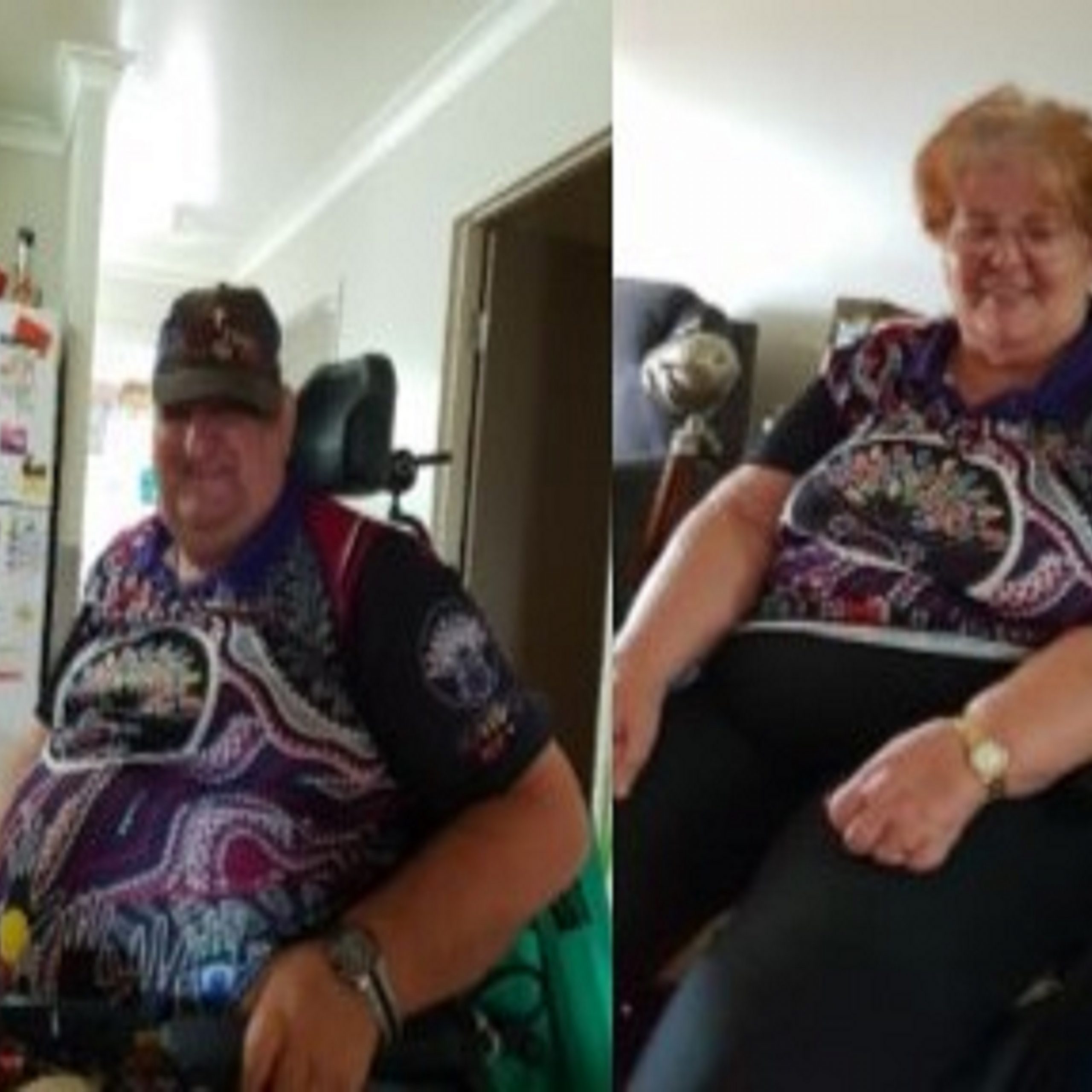 Alan & Sylvia William's Story
Alan & Sylvia William's Story
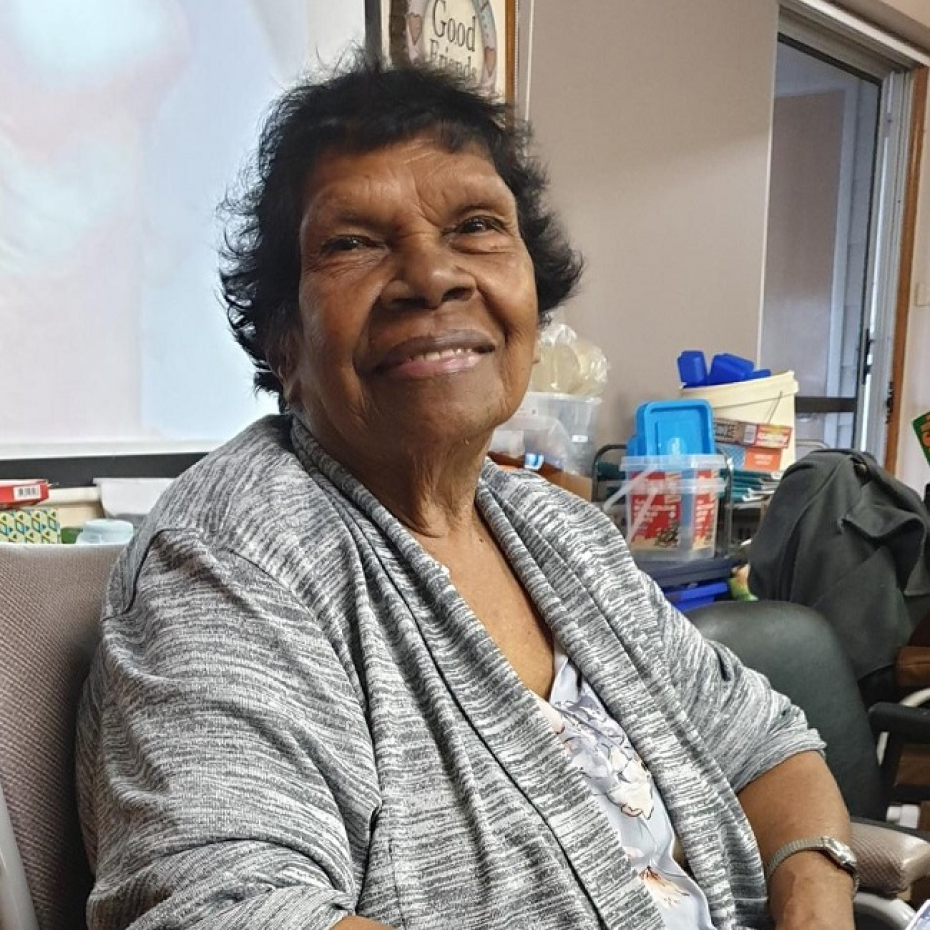 Aunty Myrtle’s Story
Aunty Myrtle’s Story
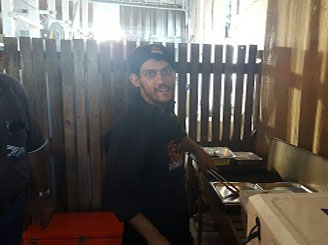 Brett's Story
Brett's Story
 Camilla's Story
Camilla's Story
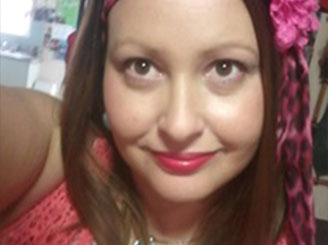 Deanna's Story
Deanna's Story
 Doug's Story
Doug's Story
 Ian's Story
Ian's Story
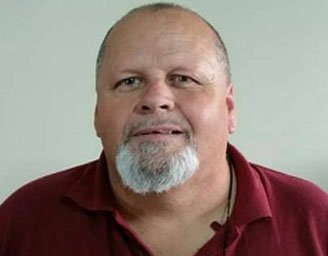 Ken's Story
Ken's Story
 Kymberley And Jacinta's Story
Kymberley And Jacinta's Story
 Michelle's Story
Michelle's Story
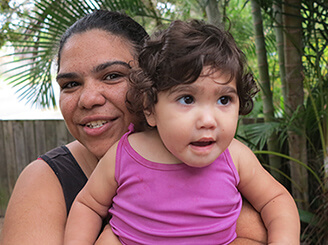 Nikita's Story
Nikita's Story
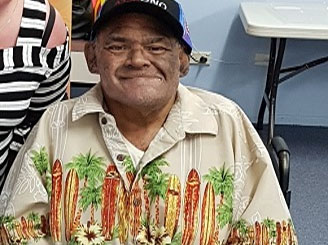 Owen's Story
Owen's Story
 Retta's Story
Retta's Story
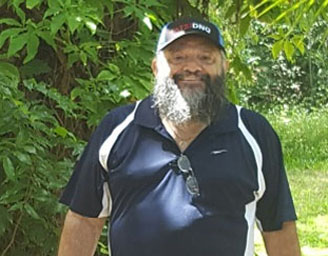 Robin's Story
Robin's Story
 Stephen's Story
Stephen's Story
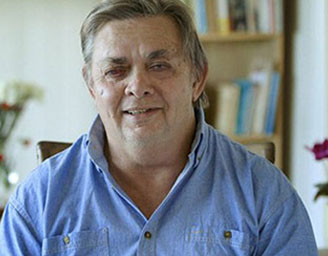 Ted's Story
Ted's Story
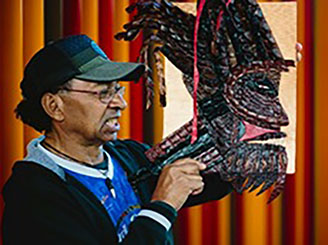 Thomas's Story
Thomas's Story
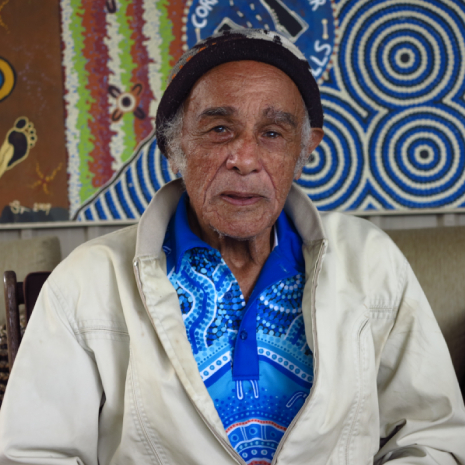 Uncle Alexander's Story
Uncle Alexander's Story
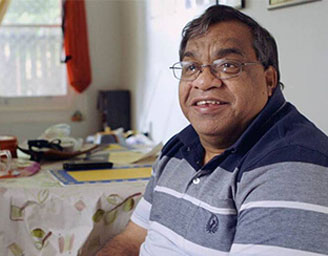 Willie Prince’s Story
Willie Prince’s Story

